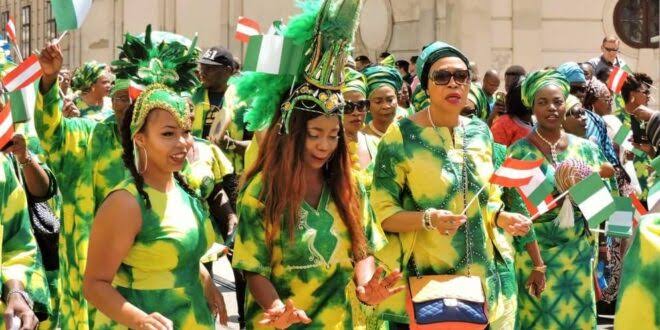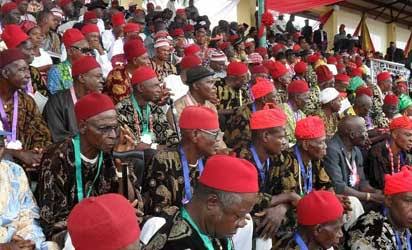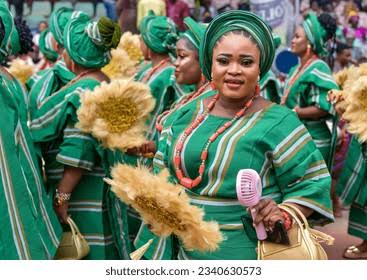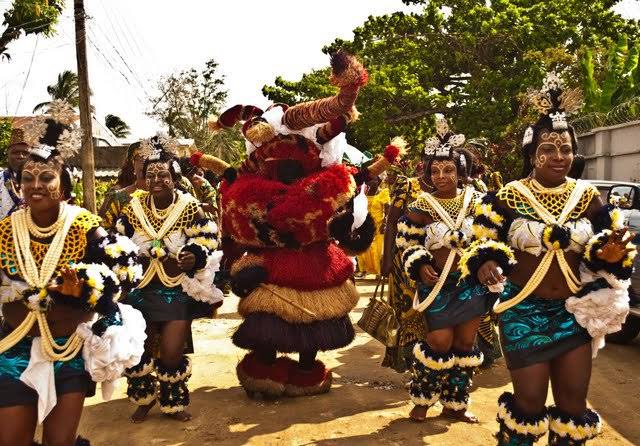
Pius Nsabe
In recent years, a phrase has steadily grown popular in the everyday speech of Nigerians, both at home and abroad: “May Nigeria never happen to you.” What began as an offhand comment, usually deployed in jest, has morphed into a cultural catchphrase, appearing in social media posts, casual conversations, comedy skits, and even the speeches of frustrated citizens. On the surface, it is a lamentation—a shorthand for the hardships and disappointments associated with living in the country: epileptic power supply, poor healthcare, unemployment, insecurity, inflation, corruption, and general misgovernance.
Yet beneath the humour and cynicism lies something deeper, a self-defeating rhetoric that has become dangerously normalized. To wish someone that “Nigeria should not happen to them” is, in truth, to declare the country itself a curse. Such a statement, while understandable in its emotional origin, reveals the depth of despair and anger that ordinary citizens feel, but it also betrays a troubling unpatriotism that undermines collective hope and national renewal.
During a bus ride from Abuja to Jos, a young woman named Hauwa Musa, a final-year student at the University of Maiduguri, narrated how the phrase has become commonplace among her peers. “Last semester, when I failed two courses because the lecturers were on strike for months, one of my friends just laughed and said, ‘Hauwa, Nigeria has happened to you.’ At first it was funny, but later it hit me—this is my life, my education, my future. Are we really saying our own country is a plague?” Her rhetorical question captures the hidden wound behind the laughter. Humour often acts as a coping mechanism, but repeated too often, it becomes a prophecy we accept without resistance.
This generational resignation is partly fueled by the undeniable crises the country has faced. From the menace of Boko Haram in the Northeast, to farmer-herder conflicts, to banditry in the Northwest, and separatist agitations in the Southeast, Nigerians have been battered by instability.
In Lagos, an entrepreneur, Chinedu Okafor, 26, reflected bitterly on his struggles. “I’ve tried to register my startup for months, but the bureaucracy, the bribes, the power cuts—it’s like the system itself fights you. My friends keep telling me, ‘Chinedu, may Nigeria not happen to you.’ But how do I escape Nigeria when I live here every day?” His lament illustrates the paradox: Nigerians wish themselves escape from Nigeria, even while inhabiting its soil and shaping its future.
The phrase is unpatriotic not simply because it sounds like a curse but because it masks complicity. To say “May Nigeria never happen to you” is to shift blame to an abstract, faceless “Nigeria,” while ignoring the fact that Nigeria is not an alien entity but the sum of its citizens, leaders, and institutions.
As Aisha Abdullahi, a secondary school teacher in Kano, put it: “We must be careful with these sayings. If we keep cursing Nigeria, we are also cursing ourselves, because Nigeria is us. When my students repeat this phrase, I tell them: don’t use words that kill your own home.” Hers is a voice of caution, reminding us that patriotism is not blind loyalty but responsible speech that seeks to heal rather than wound.
Yet one cannot entirely fault those who reach for such phrases. The country’s repeated failures have left scars on its people. The healthcare system often becomes a death sentence for the poor. A civil servant, Tunde Bakare, shared his pain at a hospital in Ibadan. “When my wife was in labour, the generator went off, and the doctor said we had to wait. I lost my first child that night. My neighbours later consoled me with the phrase, ‘May Nigeria not happen to you again.’ Can you imagine? As if my tragedy was just another episode in a national curse.” Such raw experiences fuel the despair that sustains the phrase. But despair must never be allowed to become identity.







What makes this phrase even more insidious is how it has travelled beyond Nigeria’s borders. In London, Olumide Adebayo, a 34-year-old accountant, recalled an encounter with other Africans. “At a party, some Kenyans and Ghanaians joked about Nigerians, and when I complained about my struggles getting my passport renewed at the embassy, a Nigerian friend there laughed and said, ‘Olumide, Nigeria has happened to you.’ I felt ashamed. Abroad, it sounds worse, like we are mocking our roots in front of others.” For Nigerians in the diaspora, the phrase is not just humour—it is a public washing of dirty linen that reinforces negative stereotypes of the country.
Critics argue that such sayings are part of democratic freedom of expression, and indeed, citizens should be free to criticise government failures. Yet there is a crucial difference between constructive criticism and destructive cynicism. Grace Johnson, a Lagos-based social commentator, explained: “Criticism is necessary, but self-destruction is not. When we repeat ‘May Nigeria never happen to you,’ we are killing the idea of Nigeria in the minds of young people. They begin to believe nothing good can ever come from here. That belief is more dangerous than bad governance because it robs us of willpower to change things.”
Indeed, language matters. Nations are sustained not just by constitutions and institutions but by the stories people tell about them. When the United States calls itself the “land of the free,” or when Ghana brands itself as the “Gateway to Africa,” these are not mere slogans—they are identity markers that shape how citizens and outsiders imagine the country. Nigeria once carried hopeful slogans too: “Giant of Africa,” “Good People, Great Nation.” But in recent years, citizens have replaced these affirmations with dark humour, turning patriotism upside down. The phrase “May Nigeria never happen to you” is the climax of this linguistic decline.
The tragedy is that Nigeria is not devoid of success stories. In sports, music, film, and entrepreneurship, Nigerians are thriving globally. From Burna Boy winning a Grammy, to Tobi Amusan breaking world records, to Nollywood dominating African cinema, to tech startups like Flutterwave gaining international recognition—Nigeria has shown resilience and excellence. Yet these successes are often overlooked when the phrase is repeated. As Fatima Suleiman, a small business owner in Kaduna, observed: “My tailoring shop has survived despite insecurity and inflation. I employ three people now. But when I tell my story, people laugh and say, ‘Ah, Nigeria has not happened to you yet.’ Why can’t we celebrate our wins instead of waiting for tragedy?” Her words challenge the narrative of inevitable failure.
Beyond individual stories, Nigeria has also made strides in policy innovation. The National Livestock Transformation Plan, the fight against polio, and recent investments in renewable energy are examples of efforts that, though imperfect, show governance is not a total failure. Citizens who dismiss everything with the phrase risk ignoring progress that could inspire hope. Patriotism does not mean silence in the face of corruption, but it does mean balancing critique with acknowledgement of efforts, however small.
A worrying dimension of the phrase is its effect on the youth. Over 70 percent of Nigeria’s population is under 30, and for many of them, humour is a language of survival. Social media has amplified this, with memes and jokes about Nigeria going viral daily. But when a generation grows up laughing at their country as a curse, their capacity to imagine a better Nigeria diminishes. Emeka Nnaji, a youth activist in Enugu, warned: “We can joke all we want, but if we keep saying this phrase, one day we will believe it fully. And when young people stop believing in Nigeria, then the dream of development is dead.”
To fault the phrase, therefore, is not to deny the suffering that birthed it but to insist that Nigeria cannot be reduced to suffering alone. Citizens must reclaim their language, reshaping humour into hope. Instead of “May Nigeria never happen to you,” perhaps we should say, “May Nigeria rise with you,” or “May Nigeria bless you.” The re-imagination of language is not cosmetic; it is foundational. Nations are built on shared belief, and belief is often transmitted through words.
Ultimately, patriotism is not about blind optimism; it is about refusing to abandon the possibility of collective renewal. As Dr. Ibrahim Danjuma, a political scientist in Zaria, put it: “If the phrase had been ‘May corruption never happen to you,’ or ‘May bad governance never happen to you,’ it would make sense. But by saying ‘May Nigeria never happen to you,’ we equate the entire nation with failure. That is unpatriotic and unfair.” His analysis pierces to the heart of the matter: critique should target the rot, not the root.
In markets, schools, homes, and offices, Nigerians must rethink their casual speech. What we repeat becomes what we believe, and what we believe becomes what we create. To keep declaring that Nigeria is a curse is to curse ourselves into stagnation. To shift the narrative, Nigerians must first correct their language, then demand accountability from leaders, and finally, build a culture of hope rooted in truth. The nation has problems, yes, but it is not the enemy. The enemy is bad governance, poor policies, and selfish leadership—not Nigeria itself.
As the bus to Jos finally arrived at its destination, Hauwa Musa, the student, looked out the window and said softly: “I know things are hard, but I don’t want to keep saying Nigeria has happened to me. I want to believe Nigeria can still happen for me.” Her words capture the possibility that lies hidden beneath despair: the chance to reframe the story, to reclaim the homeland, and to rebuild patriotism through hope. For unless Nigerians stop declaring war on their own name, the dream of national rebirth will remain distant.
The phrase “May Nigeria never happen to you” must be retired—not because the pain behind it is false, but because it is unfair, unpatriotic, and ultimately destructive. Nigeria deserves better from its people, and Nigerians deserve better from their country. To fault the phrase is to insist that, despite everything, Nigeria is not a curse. It is a home struggling for redemption, a people yearning for dignity, and a nation still capable of greatness.
If words shape destiny, then let us speak words that heal rather than wound. Let us say, not “May Nigeria never happen to you,” but “May Nigeria rise with you, prosper with you, and bless you.” That is not blind optimism. It is the beginning of national renewal.
